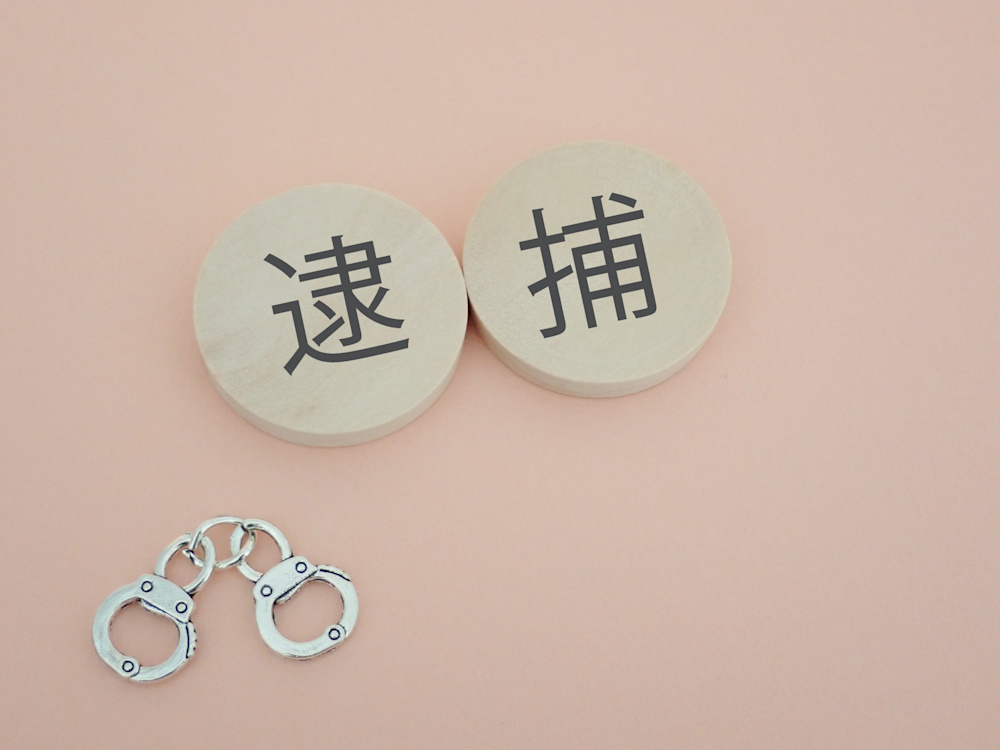Updated August 6, 2025
Getting Arrested in Japan: A Guide We Hope You Won't Need [2025]
Nobody expects to get arrested, but unfamiliarity with Japan’s laws, customs, and strict legal system can lead foreigners into unexpected trouble.
Because Japan's approach to law enforcement is fundamentally different from most Western countries, knowing what to expect and what rights you actually have can save you from making costly mistakes.
This guide explains the arrest process, clarifies your rights, and provides practical steps to navigate the system, helping you stay prepared and protected.
In this article: 📝
What Actually Happens When You're Arrested
Japan's arrest process follows strict timelines that often shock foreigners. The system prioritizes confession and detailed investigation over the presumption of innocence that many are accustomed to.
Your First 48 Hours in Custody
When you're arrested in Japan – 逮捕 (Taiho) – your phone gets confiscated immediately. There's no "one phone call" like in American movies. You'll be held for up to 48 hours while police begin their investigation.
During this period, police must inform you of the suspected crime, your right to remain silent, your right to hire a lawyer, and your right to embassy notification. However, they'll likely start questioning you before you see any legal representation.
Police will ask about the alleged crime, but also dig into your personal life, work history, family situation, and living arrangements. While this might seem irrelevant, it's standard practice in Japan. You can refuse to answer, but police may interpret this as suspicious behavior.
The 23-Day Detention Reality: Foreigner Arrested in Japan
If police believe they have sufficient evidence, they'll present your case to a prosecutor within 48 hours. From there, detention can extend to 23 days without any formal charges, which is typical for foreign arrestees.
The process usually goes like this:
An initial 10-day detention order from a judge
Possible 10-day extension (nearly always approved)
Please keep in mind that courts rarely deny detention requests, especially when it comes to foreigners without permanent residence in Japan.
Key Terms You Need to Know: Getting Arrested in Japanese
Navigating Japan's legal system becomes a bit easier if you understand its terminology.
Arrested – 逮捕 (Taiho): Once you hear this word, your freedom is gone for at least 48 hours, possibly much longer. Unlike some countries where arrest might be temporary, in Japan, this triggers a very specific legal process.
Detention – 拘留 (Kouryu): This refers to the extended holding period after your initial arrest. When Japanese officials say "kouryu," they're talking about those potential 23 days you could spend in a cell while they build their case. It's not jail exactly, but it's not freedom either.
Bail – 保釈 (Hosyaku): While bail exists in Japanese law, it's practically non-existent for foreigners. If someone mentions hosyaku, they're probably explaining why you can't have it rather than offering it.
Interrogation – 尋問 (Jinmon): Japanese police interrogations can last hours and happen daily during your detention. When you hear "jinmon," prepare for detailed questioning designed to get you talking, and potentially confessing.
Deportation – 国外追放 (Kokugai Tsuiho): The nightmare scenario for anyone wanting to stay in Japan. This term means you're not just leaving Japan, but are being forced out and likely banned from returning. Criminal convictions often lead directly to Kokugai Tsuiho proceedings.
Besides these main terms, picking up more Japanese legal words will help you better understand the process and make smart choices during an arrest.
The Harsh Reality for Foreign Arrestees
Foreigners face harsher treatment than Japanese nationals for identical crimes. Minor offenses that might result in warnings for locals often lead to prosecution for foreigners.
Why Foreigners Get Different Treatment
Japanese police operate under the assumption that foreigners are flight risks. Without strong community ties, courts consider you more likely to skip bail or flee the country. This bias affects everything from detention decisions to sentencing.
Shoplifting, drug possession (even tiny amounts), or traffic violations can result in immediate prosecution. The Japanese system shows little tolerance for "I didn't know" defenses, and ignorance of local laws doesn't provide any legal protection.
Bail: Don't Count on It
Bail is virtually unheard of for foreigners on tourist visas. Even long-term residents face steep requirements, which typically involve 2-3 million yen deposits plus promises not to leave Japan. Most foreign arrestees remain in custody until their case concludes.
Your Actual Rights When Getting Arrested in Japan (And What You're Missing)
Japan's Constitution provides certain protections, but the practical application differs significantly from Western expectations.
The rights you have are as follows:
Right to remain silent: This is your most powerful protection. You don't have to answer any questions, and this right extends throughout your detention. Police can't legally use your silence against you, though they may pressure you to talk.
Right to legal counsel: You can request a lawyer immediately. If you can't afford one, ask for a duty attorney (当番弁護士 toban bengoshi). They'll provide an initial consultation for free.
Right to refuse signing documents: Police and prosecutors will prepare written statements summarizing your responses. You can refuse to sign anything, and only signed statements are admissible in court.
That said, there are some rights you don’t have:
No lawyer during interrogation: Your attorney cannot be present during questioning sessions. You face interrogators alone, though you can consult your lawyer before and after.
No communication rights: No phone calls to family, friends, or employers are allowed. Your lawyer becomes your only link to the outside world.
No speedy trial guarantees: The 23-day investigation period can repeat for additional charges, potentially extending detention for months.

Essential Do's and Don'ts
If you find yourself in a Japanese detention cell, panicked and confused, these guidelines could save your future. Stick to them even when police pressure you to do otherwise.
The Do’s
Request a lawyer immediately upon arrest: Say this first, before answering any questions. Police will try to delay this by starting a casual conversation or claiming they just need "basic information." Don't fall for it. Lawyer up first, then talk.
Ask for embassy notification: This isn't optional. Your embassy can't get you out, but they can ensure you're not being abused and can contact your family. Police are required to facilitate this, so insist on it.
Exercise your right to remain silent when uncertain: If you're not 100% sure about an answer, don't guess. Japanese police take detailed notes and will use inconsistencies against you later, so just say "I want to consult with my lawyer before answering."
Read all documents carefully before signing: Police will present documents in Japanese and have interpreters read them aloud. The interpretation might not match what's written. If you don't understand every word, don't sign until you consult your lawyer. Unsigned statements can't be used as evidence.
Request an interpreter if needed: Don't try to tough it out in broken Japanese for something this serious. Misunderstandings can literally destroy your case. So, insist on a competent interpreter, even if it delays proceedings.
The Don’ts
Sign statements you don't fully understand: This is how innocent people end up convicted. Japanese courts give enormous weight to signed confessions. If there's any confusion about wording, meaning, or translation, refuse to sign until it's clarified with your lawyer present.
Make false confessions hoping for a quick release: This never works in Japan. Confessing to crimes you didn't commit will only speed up your conviction. Japanese police are patient. They'll wait for real evidence rather than accept fake confessions for convenience.
Provide information without legal consultation: Police will ask about your job, family, friends, daily routine, financial situation, and other personal details. They'll claim it's just "background information." It's not. Every detail can be used to build their case. Talk to your lawyer first about what's safe to discuss.
Embassy Support: Helpful But Limited
Your embassy provides crucial support during detention, but their power is more limited than many people assume.
What Embassies Will Do
Embassies will visit you in detention to check on your welfare and treatment. They'll provide lists of English-speaking attorneys and intercede with authorities to ensure your legal rights are observed.
Additional services include supplying English reading materials, notifying family and friends of your arrest, and facilitating financial assistance from home. If you're in immediate danger and need help, remember that emergency services are available 24/7.
Embassies Have Their Limitations
While embassies should be your go-to as a foreigner here, there are some things even they can’t do.
No embassy can override Japanese legal decisions or secure your release. They can’t assert your innocence, testify on your behalf, or provide legal interpreting services.
So, think of them as advocates, not miracle workers.
Legal Support Through JFBA
While an embassy can’t provide you with an attorney, you can still get help through the Japan Federation of Bar Associations. The JFBA operates a duty attorney system that provides immediate legal consultation for arrestees.
Duty attorneys will explain Japanese legal procedures, contact your family, and help arrange ongoing representation. Most importantly, they can visit you once free of charge, which is convenient considering that retaining a private criminal defense lawyer for a case can cost between $6,000 and $10,000.
Access the complete contact information through the Japan Federation of Bar Associations Contact List.
Police in Japan: Questioning on the Street
Street stops targeting foreign-looking individuals are common in Japan. Recent surveys show that 62.9% of foreign residents were questioned by police in the past five years, with most experiencing multiple stops.
Your Rights During Street Encounters
Police have broad authority to stop and question anyone in public. You must carry proper identification, your Zairyu Card if you're a resident, or a passport if visiting.
You can ask why you're being stopped, and you have the right to record the interaction. Recent police body camera trials indicate growing recognition that transparency is necessary for these encounters.
Handling Street Stops Effectively
Confrontational behavior rarely helps, so stay calm and polite. Carry required documentation and comply with reasonable requests while knowing your rights. If you feel the stop is inappropriate, record it for a later complaint rather than escalating the situation.
Special Risks for Foreign Nationals
Foreigners face unique consequences beyond standard criminal penalties that can affect their long-term future in Japan.
Visa and Immigration Complications
Your residence status won't be automatically revoked upon arrest, but problems multiply quickly. If your visa expires during detention, you become an illegal resident subject to immediate deportation upon release. In this case, have your lawyer handle visa renewals during detention.
Deportation Consequences
Criminal convictions can trigger deportation proceedings under immigration law. Sentences over one year typically result in automatic deportation after serving prison time. Even suspended sentences may lead to deportation depending on the crime and your residence status.
Drug offenses carry particularly severe consequences regardless of sentence length.
Financial Realities
Japanese criminal defense is expensive. Most defendants rely on court-appointed lawyers who may have limited English skills and availability. Private attorneys provide better service but require a substantial upfront payment.
Consider that fines must be paid before release. Failure to pay results in additional detention at roughly one day per 5,000 yen owed.
Understanding the Bigger Picture
Despite these sobering realities, Japan remains one of the world's safest countries. Most foreigners never encounter serious legal problems, and standard precautions prevent most issues.
Common Behaviors That Lead to Arrest
Certain activities carry disproportionate risks for foreigners, so keep yourself safe from legal trouble by avoiding the following:
Any drug possession: Keep in mind that Japan has a zero-tolerance policy.
Shoplifting: The chances of this being prosecuted are about 50%.
Driving violations with improper licensing: Safety is another thing Japan doesn’t play around with.
Visa overstays: Prioritizing visa procedures is of utmost importance for foreigners.
Public intoxication incidents: Japanese people love to drink, but they love their peace and societal harmony more.
Cultural Considerations
Japanese legal culture emphasizes confession and victim compensation over fighting in court. Your lawyer may recommend apologizing and paying restitution to victims. This can lead to dropped charges or significantly reduced sentences.
In Western legal systems, saying sorry can destroy your case. In Japan, however, what can destroy your case is refusing to show remorse.
Think of it this way: Japanese courts want to see that you understand the impact of your actions. A heartfelt apology plus financial compensation to make things right often carries more weight than the best legal defense.
Victims who feel heard and compensated are more likely to ask prosecutors to drop charges entirely.
Conclusion on Getting Arrested in Japan: Key Takeaways for Foreigners
Japan's criminal justice system operates on fundamentally different principles from most Western countries. Extended detention without charges, limited bail options, and confession-focused interrogations create challenges for foreign arrestees.
Your strongest protections are exercising the right to remain silent, securing competent legal representation immediately, and refusing to sign documents without proper consultation.
For the vast majority of foreigners, Japan offers a safe environment with professional law enforcement, but being prepared protects your future if the unexpected happens.
Disclaimer: This article provides general information only. If arrested or investigated in Japan, immediately seek qualified legal counsel familiar with Japanese criminal procedures.
Get Job Alerts
Sign up for our newsletter to get hand-picked tech jobs in Japan – straight to your inbox.








